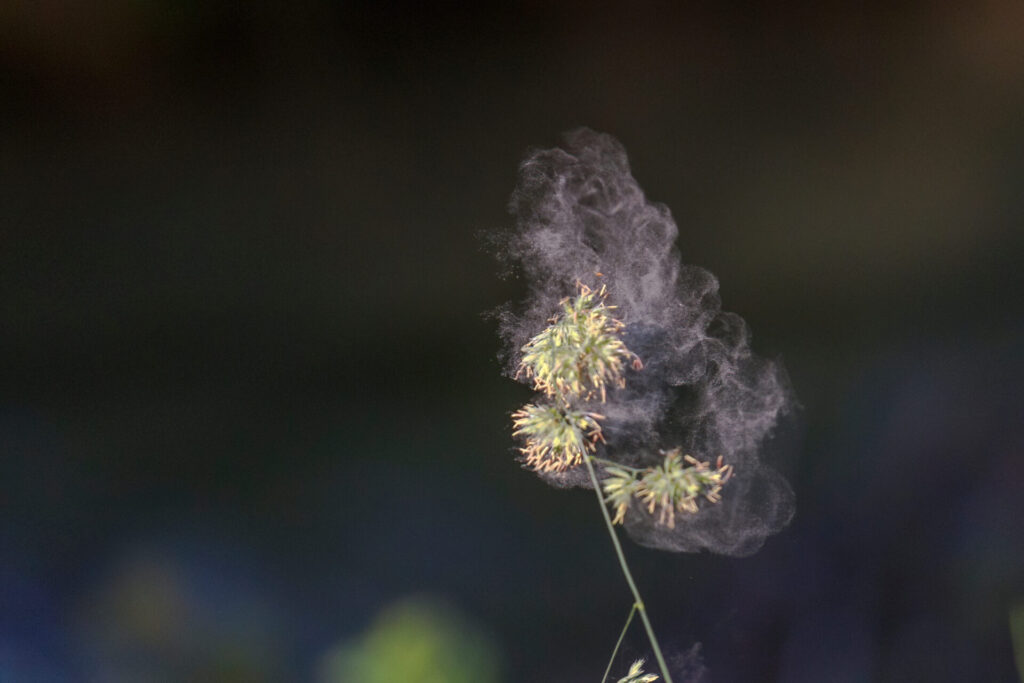Spring is quickly approaching, and pretty soon, the trees will be vibrant and full again, flowers will be in full bloom, and fields will be as green and grassy as ever. Unfortunately, all the promise of beauty and life in the spring also means pollen is on its way. As the pollen index starts to creep up and cars begin developing that yellowish-greenish tint, you may notice an increase in eye irritation, sneezing, congestion, and the overall crummy feeling that comes with seasonal allergies.
Pollen is the most common allergy trigger that people across the world are sensitive to. Whether your reaction is mild and only lasts a month or so, or your allergies remain a constant frustration from spring to autumn, you may wonder just what kind of effect the little yellow irritant has on your body.
Today, we’re diving into pollen, looking at what it is, why it’s a trigger for so many people, and what kind of effect it can have on your allergies.
What Is Pollen?
Pollen is a yellow, powdery, dust-like substance that emerges from plants during the transition from winter to spring, usually around late February or early March. If you’ve lived in Middle Georgia for a single spring or summer, you know how concentrated the pollen count can become, but why?
Georgia tends to experience warmer winters, meaning plants like trees and grasses do not enter dormancy as they should. As a result, they can continue producing pollen throughout the colder months. When the weather warms and trees and plants begin the reproduction process in spring and summer, the extra pollen produced during winter and the pollen produced at the beginning of spring is released into the air for pollination, an essential step in plant fertilization.
Unfortunately for those with a pollen allergy, this increase of pollen in the air throughout spring and summer means allergy symptoms that can last from the start of spring to fall.
What Produces Pollen?
Most trees, flowers, plants, and weeds produce pollen for reproduction. However, not all of them release their pollen into the air. Some of the ones most responsible for pollen allergies in Georgia include:
Trees
- Ash
- Hickory
- Maple
- Oak
- Pecan
- Pine
- Walnut
- Willow
Grasses
- Bahia
- Bermuda
- Fescue
- Kentucky blue
- Rye
- Vernal
Flowers
- Chrysanthemums
- Daisies
- Marigolds
- Sunflowers
Weeds
- Ragweed

Why Are People So Allergic to Pollen?
A person with a pollen allergy has an immune system that is hyper-sensitive to the proteins found in pollen grains. Whenever the system encounters pollen protein, it treats it like an intruder and triggers functions to flush it out. Unfortunately, when pollen counts increase and it becomes nearly impossible to avoid, a pollen-sensitive immune system will be in constant fight mode, trying to flush the proteins out of the body.
But why? What causes some people’s immune systems to become so reactive while others can breathe easily during warmer months? And why do some people develop a pollen allergy after years of never reacting to the stuff?
Researchers have found that the development of a pollen allergy can be linked to factors like genetics and family history. However, some patients with a pollen allergy can have parents who have never been allergic to the substance, and some allergy patients can have children who never develop the allergy. So, allergies can’t always be linked to hereditary factors. The most common reasons a patient may suffer from a pollen allergy include:
- Genetics
- Family history
- Exposure to a new environment
- The severity of an area’s air pollution
What Are the Effects of Pollen?
When the immune system works to rid the body of a pollen protein, it usually causes allergy symptoms such as:
- Itchy, watery eyes
- Runny nose
- Congestion
- Sore or scratchy throat
- Excessive sneezing
- Excessive coughing
- Facial swelling
Many of the symptoms of a pollen allergy mimic the symptoms people develop when they catch the common cold. The most significant difference is that symptoms of a pollen allergy fade whenever you are no longer exposed to pollen, while cold symptoms are consistent for a few days or up to a week.
How Can I Treat My Pollen Allergy?
It’s rare for a pollen allergy to fade once you have developed one, but there are several ways to treat or manage your allergy throughout the pollen seasons.
Antihistamine Medications
Over-the-counter antihistamines can help reduce allergy symptoms, or prescription-strength medications can be effective in soothing symptoms and providing relief.
Decongestants
Because pollen can cause excessive mucus production, decongestants may help lessen production and help mitigate runny noses, coughing, and overall congestion.
Immunotherapy
Allergy shots may be effective at providing long-term relief from your pollen allergies. Immunotherapy is a lengthy process when patients receive regular shots for a few years, desensitizing the immune system to triggers such as pollen. While treatment can seem like a long process, once treatment is complete, your immune system is far less reactive to allergens if it even reacts at all.
Want to find relief for your pollen allergies? Talk to the team at Langford Allergy.
Dr. Langford and our team are well-versed in pollen allergies that commonly affect children and adults. We will conduct a thorough allergy test to discover all the pollen types you are allergic to and create a treatment plan to help you breathe easier. Schedule your appointment today by calling 478-787-4728.
Related articles:
How to Manage Your Child’s Allergies
